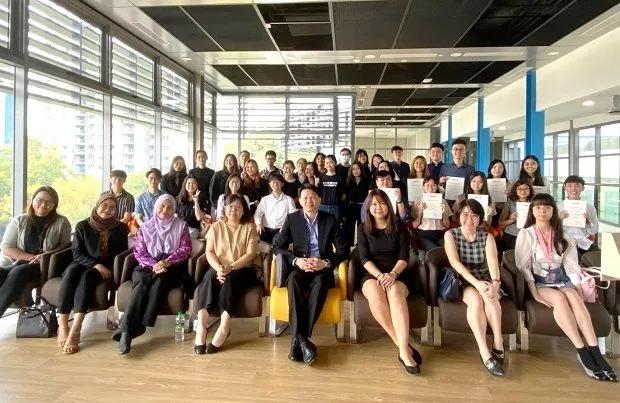Nurturing Excellence in Actuarial Science
Qualifying as an actuary is no walk in the park. The discipline uses mathematical and statistical techniques to assess financial risks across various industries accurately and is often touted as one of the most challenging academic courses. Sunway University introduced its BSc (Hons) in Actuarial Studies programme at the School of Mathematical Sciences, led by its Department of Actuarial Science and Risk, in 2013.
The programme has been fully accredited by the Institute and Faculty of Actuaries (IFoA) UK for more than five years – a certification that allows students to obtain exemptions for up to six preliminary professional papers, reducing the number of exams to qualify as an actuary by nearly half. The QS five-star certified programme has since produced more than 600 graduates, with more than 80% obtaining IFoA exemptions – most of whom have pursued successful careers in insurance, consulting, risk management and more.
One of the programme’s outstanding students is Nicholas Cheong Yeow Hoe, who graduated with First-Class Honors and seven IFoA papers. His exceptional achievements will soon qualify him as a Fellow of the IFoA – the highest achievement attainable from the institute.
Cheong spoke highly of the practical experience he gained through Sunway University’s Actuarial Practice Course (APC). “Having experienced the difficult work-and-study norm of the actuarial industry, I am grateful for the fast track that Sunway University provides as it allows me to complete the papers required for associateship within one year of my convocation,” says Cheong, the recipient of the Sir Edward Johnston (SEJ) Prize award and the China & South-East Asia (CSEA) Scholarship from the IFoA Foundation.
Sharing the spotlight is Chew Jian Xun – a final-year student and top scorer in the Actuarial Modelling (CP2) module. In addition to the six preliminary exemptions he is eligible for, Chew also completed two internships at Sun Life Malaysia and Ernst & Young Malaysia.
“The programme is very comprehensive and covers a wide range of topics across different business functions. I like that I got to learn about accounting, economics, finance, statistics, and actuarial-related topics all in one course,” he says, adding that lecturers in the programme, armed with real-world experience, are well-versed, knowledgeable and passionate. Completing additional exams, he points out, allowed him to gain a deeper understanding of the actuarial field and the scope of work.
Chew’s classmate Matthew Philippe Liu Man Hin, an all-rounder who was also the president of the Sunway Actuarial & Financial Excellence (SAFE) and Malaysia Actuarial Student Association (MASA), is another exemplary student who decided to take on additional exams – an element which has prepared him for upcoming IFoA papers.
For Liu, an added advantage of Sunway University’s programme is its vast resources. “The accessibility of different resources was also easy with the well-equipped library and knowledgeable lecturers who I could approach when faced with a problem,” says Liu, who noted that the APC is vital in preparing for practical actuarial work.
Aimi Syairah, the Programme Leader for BSc (Hons) in Actuarial Studies, says that preparing Sunway University graduates for actuarial science goes beyond academic excellence.
“We prioritise the development of lifelong skills, including soft skills such as communication and problem-solving, which are highly sought after in today's job market,” says Aimi, adding that Sunway University is officially recognised as the nation’s number one university for graduate employability.
Graduates of Sunway University’s BSc (Hons) in Actuarial Studies programme firmly believe in the programme’s excellence. Backed by impressive employability statistics and a comprehensive education style, Sunway University should be among the top choices for any aspiring actuary.
Aimi Syairah Md Sa'at
School of Mathematical Sciences
Email: @email
This article has been adapted from the original story found in The Star, 30 August 2023.




